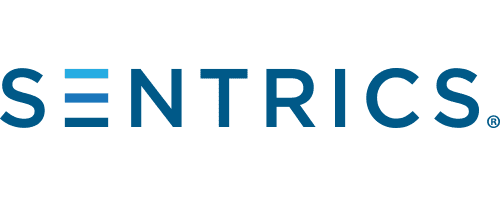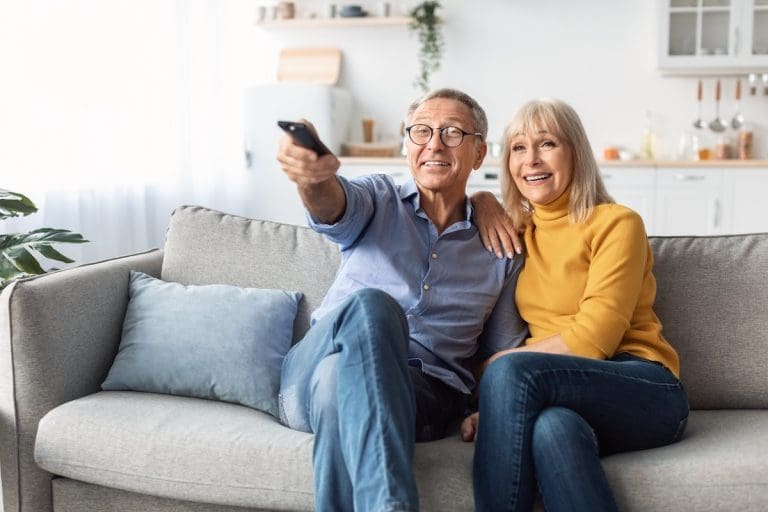In a hypercompetitive landscape, senior living community owners and operators must leverage new methods to increase efficiency, quality of care, and safety.
While the quest for operational optimization is a worthwhile endeavor, it’s equally important to consider a resident’s dignity and autonomy while in long term care, independent living, assisted living, or memory care. Treating seniors with the respect they deserve is a feel-good practice, and a critical measurement of quality of care.
Today, there are directives and technologies you can embrace to support resident dignity and enhance the care of your residents. Increasing resident days and improving satisfaction means ensuring that your residents feel comfortable, loved, cared for, and secure.
How you fulfill that goal sets you apart from other communities.
What is Aging with Personal Dignity?
Everyone wishes to age with dignity. But what does that really mean?
Although the phrase is subjective, ultimately it comes down to four factors:
- Respect – Dignity and respect aren’t synonymous. Personal dignity is linked to your inherent value and worth as an individual. Every person is born with it. Respect, on the other hand, is about paying proper regard to the position, feelings, wishes, and rights of another individual. This means speaking kindly, listening carefully, and understanding your resident’s value, as well as deferring to them and their knowledge.
- Individuality – For a senior to feel dignified, they can’t be treated like a nameless, faceless resident. Each person has unique challenges, experiences, beliefs, desires, and communication styles. It’s critical that you acknowledge and celebrate all residents’ individualism.
- Choice – A resident’s day-to-day life and activities may feel more restricted than when they were young adults or even middle-aged. They must still feel as if they have autonomy agency over their schedule and surroundings.
- Safety – It’s vital that residents always feel a sense of security. They need to know that staff actions help ensure their health, safety, and wellbeing. This includes action to help prevent or minimize infectious diseases like COVID and influenza.
How Do You Promote Resident Health While Preserving Their Dignity?
While most senior living staff do a fantastic job with the basics of promoting resident dignity—i.e., using their preferred names, knocking before entering, assisting as needed—one significant area that often gets overlooked is resident health.
In particular, there are three challenges that pose the most significant threat to both resident dignity and health:
Hesitation to Discuss Personal Issues with Staff
All too often, residents miss the health support they need because they’re embarrassed to discuss personal issues or don’t want to burden staff with “trivial things.” Common issues that might require immediate assistance but are not aired frequently include:
- “I keep having to use the restroom.”
- “I feel lonely and depressed.”
- “I’m having accidents at night but I don’t want to bother anyone.”
If you want seniors to ask for assistance, they need to feel comfortable having those discussions. If alerting staff to an issue is a hassle-free process, they’ll be more willing to share the personal issues they face on an everyday basis. Should the staff anticipate these problems before a resident has to say anything, that’s even better.
Falling in Front of Their Peers
Falls occur frequently. According to the National Council on Aging, more than 25% of seniors over the age of 65 fall each year. Falls are the leading cause of fatal injury among older adults, and the most frequent reason for non-fatal trauma.
Despite the high frequency of falls in senior living communities, residents always feel embarrassed when it happens to them. Think about it; it’s embarrassing for anyone. Common complaints include:
- “My neighbors look at me differently now.”
- “I feel frail and old now that I have to use this walker.”
- “I can’t leave my apartment when I want to now; I have to wait for help.”
It’s difficult to acknowledge the impacts of aging. Many residents think that falling may hurt their image, which is something they desperately want to protect. It’s important for care staff to quell this embarrassment.
Feeling Helpless and Like a Child
A common complaint from seniors is that they feel undignified when they’re treated like children. Every day they’re told where to go and what to do. At the same time, they are constantly monitored by staff and family.
For some seniors, the constant check-ins and daily reminders can feel patronizing, even though the intentions guiding them are good. You may have heard seniors report:
- “My daughter asks me every day if I’m exercising.”
- “The activities director won’t let us leave the activity until she takes attendance.”
- “Every couple of hours someone is checking in on me.”
Senior living communities need to help residents feel independent while they maintain a careful watch. The challenge is finding that balance between caring for the resident and watching their every move.
Technology Can Help Support Resident Dignity
Fortunately, technology provides an unobtrusive way to promote resident health without stepping on resident autonomy and dignity. In fact, there are powerful technology solutions that can help you proactively respond to these three challenges.
What are they?
#1 Passive Health Monitoring
Many trendsetting senior living communities embrace the use of environmental sensors, location tracking, and emergency equipment solutions that collect and analyze thousands of data points from each resident daily.
When integrated and analyzed for trends, this data can provide operators and caregivers with insights about the needs of the residents, and changes in their behaviors—all in a nonintrusive way. When combined with machine learning or artificial intelligence (AI), this information can predict adverse events to help caregivers anticipate and act before an adverse event occurs.
This supports resident dignity while also promoting resident health.
These AI-based systems are capable of monitoring behavior, comparing it to the resident baseline and alerting staff if there is an imminent problem. For instance, staff can keep tabs on:
- Bathroom frequency
- Changes in sleep patterns
- Incontinence monitoring
- Changes in mood and sociability
- Increases or decreases in physical exercise
Measuring this information passively often spares residents from having to bring up an embarrassing health situation. Instead of waiting to be told about the issue, caregivers can intervene early before the situation deteriorates. And since the information was gathered in a noninvasive manner, residents won’t feel as if their privacy and space are being violated.
It’s a win-win for both parties.
#2 Fall Prevention Technology
While a fall is embarrassing, especially when it happens in front of peers, the larger threat to seniors is the direct consequences of a fall itself—the physical injuries and loss of self-confidence.
Falls that result in serious injury are just the beginning of significant health concerns.
The natural reaction to a fall might be to modify activities and behaviors, remove environmental hazards, or remove the person from the situation. However, such actions might come at the expense of resident dignity. Dr. Robert Berg from the Institute of Medicine warns that:
“A delicate balance must always be struck between reduction in risk and maintenance of quality of life and independence. Although drastic reductions in activity may decrease falls in the short term by reducing exposure, over the long term, reduced self-confidence and physical deconditioning may only increase risk.”
One way to support resident dignity and health is by preventing falls from occurring in the first place.
Today, there are technology solutions that identify and leverage changes in resident health and behavior to predict falls. This empowers staff to act before a fall occurs. Once a resident becomes a fall risk, senior living communities can encourage high-risk seniors to engage in exercises specifically focused on fall prevention.
These solutions help:
- Reduce the risk of falling and incurring serious injury
- Build the resident’s confidence and physical core to prevent falls
- Empower seniors to live more autonomously
#3 Passive Assurance Checks
A sense of autonomy is a vital aspect of senior health, dignity, and happiness. It’s understandable that a resident might feel annoyed and smothered if family or staff are always “hovering” over their shoulder.
Similar to passive health checks, the same technology solutions afford staff and family members new ways to keep tabs on resident activity, moods, behavior, exercise habits, sociability and health without being overbearing.
This includes tools like:
- Passive assurance checks – See that the resident is up and moving for the day without having to check in on them
- Socialization trends– Monitor behavioral trends, activity levels, and activity attendance
- Family apps – Facilitate communication between residents and family so that seniors feel connected and involved
When residents believe their privacy and independence is respected, they’re far more responsive to the concerns of staff or family members. This helps create a healthy dialogue about their physical, medical, social, and behavioral health, in which they’re actively engaged participants.
The Solution for Resident Dignity
Ultimately, honoring senior dignity comes down to showing them respect, treating them as individuals, giving them a say, and helping them feel safe.
Today, there are technology solutions such as the Sentrics360SM platform, that provide staff and family members the tools they need to promote resident dignity. While you already help residents feel dignified and valued, Sentrics can help you:
- Preserve resident confidence
- Predict and prevent falls
- Gather insights about resident need while granting them independence
With Sentrics you can have a 360-degree view of residents’ physical, medical, social, and behavioral needs without intruding upon their privacy and dignity. Your residents will love you for it, family members will thank you for it, and your quality of care will increase alongside their affection.
Sources:
- National Council for Aging Care. Fact Sheet: Falls-The Biggest Threat to Senior Health and Safety. https://aging.com/falls-fact-sheet/
- NCBI. The Second Fifty Years: Promoting Health and Preventing Disability. https://www.ncbi.nlm.nih.gov/books/NBK235613/
- NCBI. Maintaining the dignity and autonomy of older people in the healthcare setting. https://www.ncbi.nlm.nih.gov/pmc/articles/PMC1119851/



